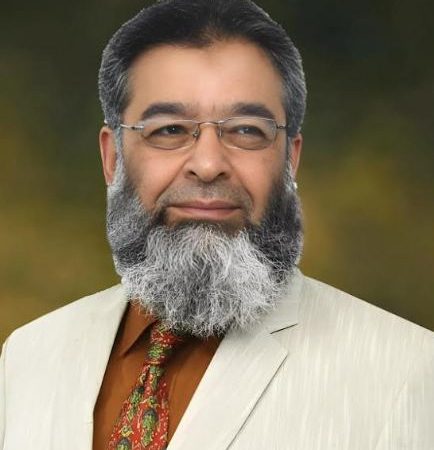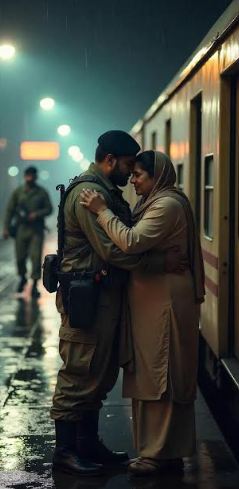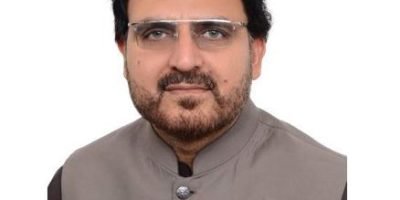Eid Without Loved Ones: The Silent Grief of Martyrs’ Families

by Muhammad Mohsin Iqbal
Eid is undoubtedly a festival of happiness, a day of celebration and gratitude after a month of fasting. It is a time for families to come together, for laughter to echo in homes, and for loved ones to exchange warm greetings.However, amid the joyous atmosphere, there are countless homes where silence replaces laughter, where memories fill the space left by those who once celebrated with them. These are the families of martyrs—those who sacrificed their lives to protect this nation, leaving behind parents, spouses, and children who now experience Eid with a deep void in their hearts.

In the homes of these martyrs, the festive spirit is overshadowed by the painful absence of their loved ones. Their uniforms, medals, and cherished belongings remain in their rooms as silent reminders of their sacrifice. Every Eid, these items stir emotions too deep to be expressed in words. Mothers, who once prepared special dishes for their sons, now prepare meals with tears in their eyes. Fathers, who once embraced their sons in pride, now sit in quiet remembrance. Wives, who once looked forward to celebrating Eid with their husbands, now struggle with an emptiness that no words can fill. Children, too young to understand the full depth of their loss, still wait at the door, hoping their father will return with gifts, unaware that he has given the greatest gift of all—his life for the nation.
A striking example of this sacrifice is the story of Captain Karnal Sher Khan Shaheed (Nishan-e-Haider). He embraced martyrdom during the Kargil conflict, fighting with unmatched bravery. His mother, despite her immense grief, always expressed pride in his sacrifice. She once said, “My son was not just mine; he belonged to the entire nation. His sacrifice was not a loss; it was an honor.” This sentiment echoes in the hearts of many families who have lost their loved ones in service to Pakistan.
Similarly, the family of Aitzaz Hasan, the young boy who sacrificed his life in January 6, 2014 to stop a suicide bomber from attacking his school, spends each Eid in reflection. His father, Mujahid Ali, has often stated, “My son saved hundreds of lives, but he left a void in our home that can never be filled.” These are not just stories; they are living examples of the price paid for our peace and security.
Islam teaches us to honor those who sacrifice their lives for a just cause. The Holy Quran states
“Think not of those who are slain in the way of Allah as dead. Nay, they are alive, finding their sustenance in the presence of their Lord.” (Surah Aal-e-Imran 3:169)
This verse assures us that martyrs are not truly gone; they have attained an eternal life in the hereafter. However, for their families, the separation is a daily struggle. The pain intensifies on occasions like Eid when their absence is most deeply felt.
The Prophet Muhammad (peace be upon him) emphasized the honor of martyrdom in many Hadiths. He said
“A martyr is given six special blessings: he is forgiven with the first drop of his blood, he is shown his place in Jannah, he is saved from the punishment of the grave, he is kept safe from the Great Terror (Day of Judgment), he is crowned with honor, and he will be allowed to intercede for seventy of his relatives.” (Tirmidhi)
This Hadith not only highlights the high status of martyrs in Islam but also reminds us of our responsibility to support their families. Their sacrifice is not just the ultimate test for them but also a challenge for those they leave behind.
We have nothing to repay for these unparalleled emotions.The selflessness of their sacrifice is priceless, but we as a society must ensure that their families are not left alone in their grief. True celebration of Eid is not just in personal joy but in sharing happiness with others, especially those who struggle with sorrow.
The Prophet Muhammad (peace be upon him) taught us that the best among us are those who help others. He said
“The most beloved people to Allah are those who are most beneficial to others. And the most beloved deed to Allah is to make a Muslim happy, to remove his troubles, to pay off his debt, or to remove his hunger.” (Tabarani)
This Hadith serves as a guiding principle for how we should approach Eid. We must reach out to the families of martyrs, visit them, include them in our celebrations, and remind them that they are not alone. Even a simple gesture, a heartfelt Eid greeting, or a small act of kindness can make a difference.
As we celebrate Eid with our loved ones, let us take a moment to reflect on the sacrifices that allow us to live in peace. Let us honor the memory of those who have laid down their lives and extend our hands in solidarity to their families. Their loss is our loss, and their pain should be our concern. May Allah grant the martyrs the highest ranks in Jannah and give their families patience and strength. Let us ensure that this Eid is not just a festival of happiness but also a reminder of our responsibility towards those who have given everything for our nation.
Related News

Make America Go Away
Qamar Bashir The red caps were impossible to miss. In Copenhagen’s winter chill, protesters gatheredRead More



Comments are Closed